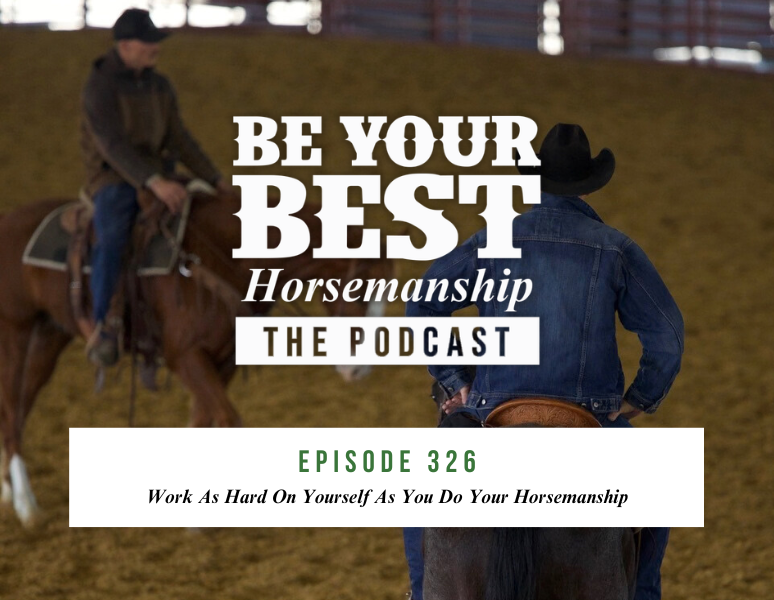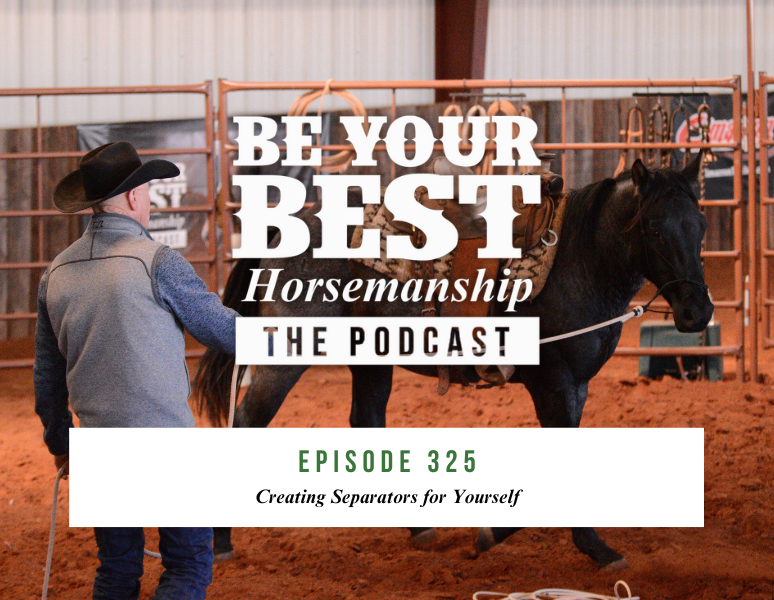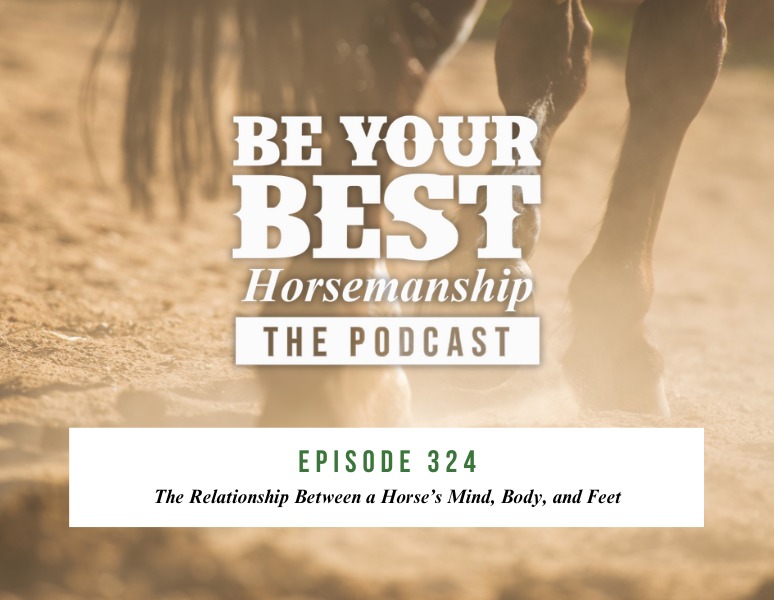Ep 6: How Your Attitude Impacts Your Horse’s Performance
Yesterday, as I was getting ready to start saddling horses, I had a few things hanging over my head from the weekend. I was coming off of a weekend where I had a lot of other things going on besides training horses—we had some renovation projects going on around the house, and our typical weekend routine was thrown off course. I caught myself feeling overwhelmed with the week ahead.
Early on in my training career, I realized that the success of my day is heavily dependent upon my attitude. So, before I ever went outside to catch a horse, I had to stop myself and consider what I was allowing myself to think about. And, I had to decide if my thoughts were setting me up for a successful day of training.
If you’re having one of those days where you’re feeling overwhelmed, stop to consider how your attitude is going to affect your horse’s performance. When you go to catch that horse, you need to realize that it is not about how quickly you can get the job done. It’s about how much progress you can make with that horse today.
Remember that your horse doesn’t understand what’s going on in your life.
You’ll hear a similar theme in many of the Be Your Best Horsemanship episodes, and that is the concept of understanding the animal you are training. You have to understand that horses have no idea what is going on in your life. And quite frankly, they don’t care what’s going on in your life. They care about how they feel and about how you treat them. You have to understand that training begins before you ever step foot into the pen to catch your horse. The attitude in which you approach catching, saddling, and riding that horse has everything to do with how that day of training is going to go.
Overcome the overwhelm.
All of the responsibilities that we stack on ourselves—pressure from our lives, parenting, and careers—can cause a lot of stress. Sometimes, the stresses of our lives outside of horsemanship can carry over into our relationship with our horses. But, the thing to realize is that most of the stresses of everyday life are self-inflicted. You are in control of your thoughts, emotions, and attitudes. When you are stressed or you feel like you’re in a hurry, you have to keep in mind how your movements may affect your horse. Even if your schedule is hectic and you’re short on time, you have to think about how you are approaching each situation to set yourself and your horse up for success.
Establish a partnership, not a dictatorship.
There are different types of relationships we can have with one another—there’s a dictatorship, a partnership, a player/coach relationship, or an employer/employee relationship—and, you have to understand which one you’re developing with your animal.
There was a point in my training career where my relationship with my horses was a dictatorship, and I wasn’t considering the horse’s feelings when I was training. When I told my horse to do something, nothing was optional. Nothing was negotiable. The horses would work because they had to. When I had that attitude, I never had a horse that was as good as it could be because of the dictatorship I had established.
I compare it to the same concept as an employer/employee relationship. If the employee enjoys their employer and the nature of their job, they will work hard because they truly want to, not because they have to. When the employee works hard, they are rewarded financially. This financial compensation is a driving factor for the employee to continue working hard day after day. But when we think about our relationships with our horses, what is their reward for performing well?
Set performance parameters.
A good employer is going to push you and give you parameters to help you understand how much effort you need to put out. The same is true with the horse/rider relationship. You need to set parameters with your horse so they understand how much effort is needed when you ask for certain movements. I firmly believe that you can, in fact, train a horse to give effort. You have to establish a release/rewards system. When they give the effort you are requesting, they get the release. As a trainer, it is important to recognize when you’re asking too much. Set achievable parameters for your horse. Growth is still growth, even if it’s only 1% at a time.
Push through tough situations.
In your training career, there will be horses that challenge you. There will be times when you have to push through tough situations. Sometimes, your horse can have a bad attitude too. When they get resentful and start resisting, it is essential to keep your own attitude in check. If you have two mentally frustrated animals working against each other, you’re going to get nowhere. Your mindset is essential to the progression of your training.
“Be Your Best Horsemanship” is brought to you by Classic Equine, Martin Saddlery, Better Horses Network, Purina, Healthycoat, CINCH, Starbar, and Clarifly. These brands have been part of the Phil Haugen Horsemanship team for many years, and their products continue to play an integral role in the success of our performance horse training program. To support these brands, visit our Sponsors tab.




